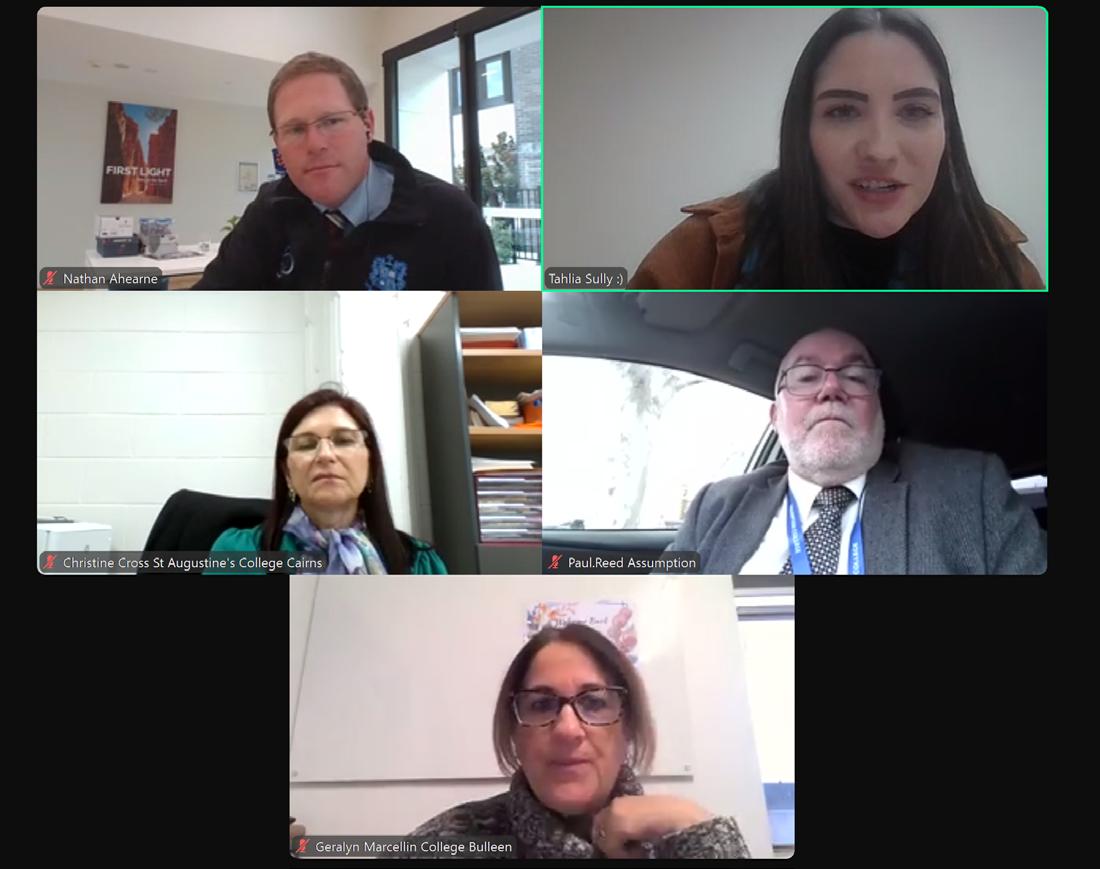
2 minute read
COMMUNITY UPDATES

Former Parramatta Marist High School Student, Zain Chaudry, presents to Marist School staff on his experiences of lobbying to the UN as a high school student.
In 2020, Zain Chaudry was a 16-year-old high school student at Parramatta Marist High School. It was here that he heard a presentation from an Old Boy of the College who had been to the United Nations to lobby on key issues as part of the Universal Periodic Review (UPR). Students were invited to work on a new presentation to the UN as Australia’s review was undertaken in 2021.
Zain wasn’t sure what that entailed or what he was getting himself into, but he saw an opportunity to make a difference and went for it.
“It was...Oh gosh...Nerve-racking! Absolutely terrifying!” says Zain about what it felt like speaking in front of UN officials.
The Universal Periodic Review (UPR) is a unique mechanism of the Human Rights Council that calls for each UN Member State to undergo a peer review of its human rights records every 4.5 years. The UPR provides each State the opportunity to report on its actions to improve the human rights situations in their countries and to receive recommendations informed by multi-stakeholder input and presession reports – from UN Member States for continuous improvement.
Zain and five of his peers from Parramatta Marist were invited by the international Marist solidarity agency, FMSI, to develop recommendations and lobby for their adoption within the UPR process. The themes they chose were climate change, asylum seekers and refugees, and domestic violence.
Zain shared his experience with the
AMS Regional Working Group on 13 June, which consisted of Heads of Mission, RECs, and APREs from Australian Marist schools. The meeting’s theme was advocacy, and Zain’s story was used as the impetus for a discussion about enabling student voice.
Zain urged the staff assembled not to “underestimate the voice of young people.”
“It’s integral to our society that we give young people a voice, a stage, to advocate because it’s the policies, it’s the plans, it’s the procedures that they will grow up on, they will grow into...So when we grow up and are in those roles of representation and power, it’s not us changing the policies set before us; it’s us improving the policies that were set by us.”









